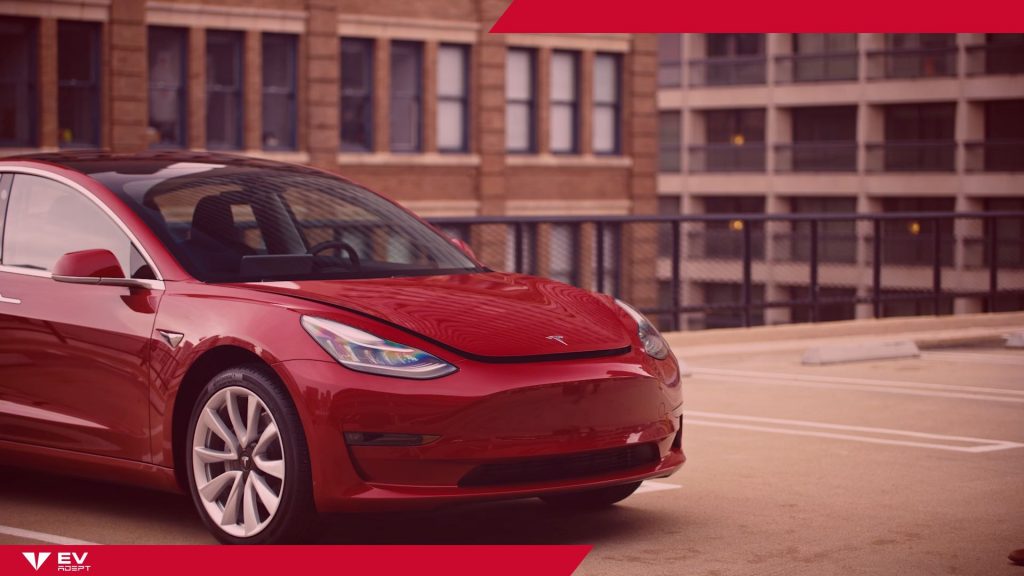Since 1886, the automobile has evolved tremendously. It began with a small buggy design, and over time, the car has improved in terms of speed, efficiency, and safety. Despite the fact that automobiles continue to develop, America’s roads have remained virtually unaltered since Eisenhower established the federal highway system in the 1950s. As automobiles become more advanced, we must consider how to improve the infrastructure that supports them.
Electric transportation is the future. By September 2019, there were more than 1.3 million electric cars on US roads, and this number is expected to rise to 18.7 million by 2030. Today, charging your car at home is the most popular option. It’s cost-effective, easy to use, and suitable for a wide range of people.
However, we must have adequate infrastructure in place to support long road trips, ground shipping delivery services, and the movement of products across the nation in order to fully transition to electric vehicles. EV charging lanes may help speed up the adoption of permanent electric transportation.

Wireless technologies with which we are familiar
Portable devices, electric toothbrushes, and our cars are all being charged on their stands. Power is transferred through magnetic fields using induction between metal coils over a short distance in this technology. The first wireless charging lanes have carried over this innovation.
The biggest question surrounding wireless charging is where it will be implemented in the United States. When it comes to wireless energy transmission, there are two options: near and far. Near-field wireless technology is now being used in consumer trials that are known to most people.
Electron and other companies have been testing EV charging lanes in Sweden and Israel, respectively, and have announced intentions to expand globally in the future. There is SELECT (Sustainable Electrified Transportation Research Center), where experts are working on technologies for a fully electrified transportation system.
There are a few concerns when a technology makes the leap from the lab to the road, just as there are with all new technologies. It’s critical to ensure that a technology is safe, cost-effective, and ready for infrastructure integration before putting it into use.
Today, you can already find wireless charger prototypes for household applications that will charge your Tesla in the garage. However, a modification of the electric car itself is also required, and as practice has shown, not all EV Adept customers are willing to risk the warranty on their car.
Wireless charging at a distance is a bit more complicated
Wireless charging is a relatively new technology. This method uses radio waves to charge the car while it’s in motion. It also has the potential to operate without changing infrastructure by using far-field wireless power for charging drones in the air and smart poles that provide Wi-Fi or cellular service.
Read more: Plugless charging on the road for EVs
Recently tried out a wireless EV charger prototype for my Tesla. Honestly, it felt like magic, but I’m hesitant. I’m no engineer, but this concept of charging through magnetic fields? Reminds me of my first wireless phone charger. Kinda cool but also kinda scary. I mean, messing with the car’s innards for this? What if it voids my warranty? Curious though, has anyone else tried this? Thoughts on safety and warranty issues?
I get your concern. I installed a wireless charger for my Chevy Bolt, had similar worries. Turns out, my warranty wasn’t affected. But you should check with your manufacturer. Safety-wise, it’s been smooth sailing for me. How’s the charging efficiency for you?
Just caught wind of Electron testing EV charging lanes in Sweden. It’s a game-changer! Imagine driving and charging simultaneously. But how feasible is it really? Infrastructure costs, maintenance… it’s a huge undertaking. Anyone else excited but skeptical?
It’s definitely ambitious. The tech behind it is solid, though. Think about the long-term benefits – less reliance on charging stations, extended range. Sure, it’s a big investment now, but the payoff could be massive.
Just a heads up, saw a recall notice for a batch of wireless EV chargers due to overheating issues. Always check your product’s batch number against the manufacturer’s website. Safety first, folks. Anyone affected by this?
So, I’m in the market for a new EV. Budget’s around $40k. I want something with decent range and preferably compatible with the latest wireless charging tech. Any recommendations?
For that budget, check out the Nissan Leaf or the Hyundai Kona Electric. Both have good range and should be compatible with upcoming tech upgrades. Plus, they’re solid cars overall.
Creating a guide for new EV owners here. Would love input on charging best practices, especially with these new wireless options. I’ve got some tips, but I’m sure there’s more to learn. Let’s pool our knowledge!
Anyone else notice their EV’s battery degrading faster with wireless charging? I’m seeing a noticeable dip in performance. Could just be my model, or maybe it’s a common issue? Thoughts?
I noticed a slight drop in my Tesla’s battery efficiency too. Not sure if it’s the wireless charging or just general wear and tear. Anyone else experiencing this?
Just read about an app called PlugShare for finding EV charging stations. Seems handy, especially for long trips. Any users here? How accurate and up-to-date is it?
Planning a bulk buy of the latest EV charging accessories. Anyone interested in joining for a group discount? Could be a great way to save some cash.
Count me in! Been looking to get some new accessories. What’s on the list?
Experimented with a DIY approach to wireless EV charging. I wouldn’t recommend it unless you’re really tech-savvy. The risk of damaging your vehicle is high, and it’s not as simple as it seems. Better to wait for commercial solutions.
I love the concept of wireless EV charging, but what about the environmental impact? Are we just swapping one problem for another? Keen to hear thoughts on this, especially any research or studies.